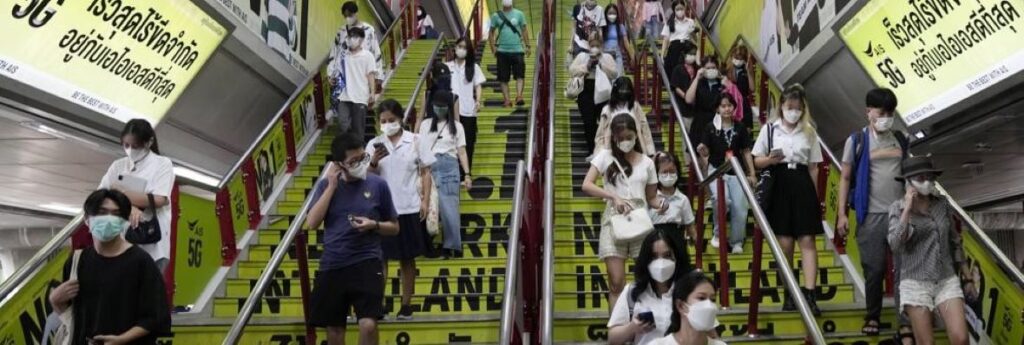Across Asia, borders are furthering cracking open with several destinations, from Japan to Hong Kong, Taiwan, Thailand, and Bhutan, announcing that restrictions are being loosened.
In Japan, strict border restrictions will be loosened next month, the prime minister announced late last week, allowing tourists to easily enter for the first time since the start of the pandemic.
Prime Minister Fumio Kishida said independent tourists would again be welcomed as of Oct. 11, not just those travelling with authorized groups.
A cap on the number of tourists who are granted entry – which has been gradually increased this year – will be nixed altogether. And visa requirements that were imposed in response to the pandemic will also be rescinded.
Japan’s tough COVID-19 restrictions have sent the number of visitors plummeting and its tourism industry reeling. Though foreign tourists were welcomed back in June after a pause of more than two years, the reopening has been confusing to many seeking to visit.
Hong Kong
Meanwhile, Hong Kong’s leader announced that, effective this week, incoming travellers are no longer required to quarantine in designated hotels as it seeks open up globally after nearly two years.
Incoming travellers also no longer need a negative PCR test within 48 hours before boarding a plane to Hong Kong; instead, they will need to present a negative COVID-19 result from a rapid antigen test conducted within 24 hours before the flight.
Travellers into Hong Kong, however, will have to undergo three days of home or hotel monitoring. If they test negative for COVID-19 after three days, they will be allowed into venues such as restaurants and bars. They must also undergo several mandatory PCR tests, including one on arrival, as well as on their second, fourth and sixth days in Hong Kong, coupled with daily antigen rapid tests every day for their first week.
For nearly two years, Hong Kong required overseas arrivals in the city to serve a period of mandatory quarantine in designated hotels. At one point, the city had among the world’s longest quarantine periods at 21 days of mandatory isolation.
Taiwan
Taiwan is considering an end to its quarantine requirement for all arrivals in mid-October, the Central Epidemic Command Center said last week. The island has been one of the few places in the world that has held on to a quarantine for all arrivals throughout the course of the pandemic. In recent months, it has steadily reduced the previously two-week-long quarantine.
Officials with the CECC in charge of the pandemic response announced they were planning to end quarantine and change it to seven days of self-health monitoring. But the change is dependent on the pandemic situation in Taiwan over the next week. The expected date for the end of quarantine is Oct. 13.
Thailand
Thailand’s government is set to lift an emergency decree it imposed in March 2020 to battle the coronavirus as it relaxes most pandemic restrictions. From Oct. 1, foreign visitors will no longer be required to show proof of being vaccinated, and people found to be infected will no longer need to quarantine.
The emergency decree, which has been renewed repeatedly despite opposition, will not be extended at the end of this month, officials said, however government officials says the public will be asked to continue practicing general preventive measures, including continuing to wear masks in public.
Bhutan
On Sept. 22, the Kingdom of Bhutan officially re-opened its borders to international guests following the pandemic. The Himalayan nation intends to “reset” and reinforce its previous “high value, low volume” tourism strategy.

